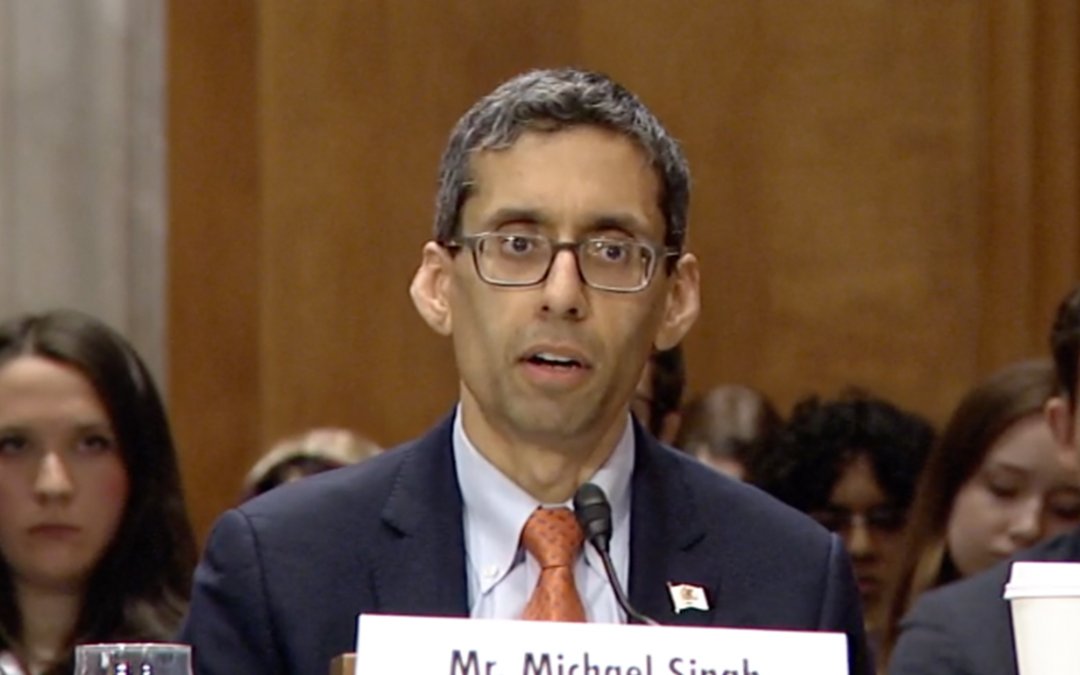WASHINGTON – Two foreign policy experts pushed Congress to support the new Syrian government as a means of stopping Russian and Iranian influence, and a bipartisan group of senators embraced their message.
Former President Bashar al-Assad was forced out of office by a rebel group, the Islamist Hayat Tahir al-Sham (HTS), in December 2024. The Senate Committee on Foreign Relations held its first hearing on Syria’s regime change.
“I think you have bipartisan agreement that we have a real opportunity with the fall of the Assad regime to see a whole new era in Syria and a new era for U.S. interests in the Middle East,” Michael Singh of the Washington Institute for Near East Policy told Medill News Service after the hearing. “It’s going to take patience, it’s going to take laying out some benchmarks for this new government.”
After many years of sanctioning Syria, senators were grappling with how to redirect US foreign policy in the country in order to minimize the roles Russia and Iran have played.
Singh and Dana Stroul, also of the Washington Institute for Near East Policy, testified at the hearing. Both supported lifting sanctions on Syria, which were put in place during Assad’s rule, if the new government meets benchmarks that serve the U.S. interest.
“I think there is a shared interest. Nobody wants to see ISIS reconstitute,” Stroul said at the hearing.
Sen. Jim Risch (R-Idaho), the committee chair, said in the hearing that he wanted to prevent Syria from serving as a launch pad for terrorists and limit Russian and Iranian influence.
Russia and Iran were allies with the Assad family, which led Syria for over 50 years. The Russian government took in Bashar al-Assad after the regime’s fall.
“The regime was committing a variety of atrocities and all kinds of war crime violations,” Robert S. Ford, who served as U.S. Ambassador to Syria during the Obama administration, said in an interview on Wednesday. “Chemical weapons were used and barrel bombs were used and hospitals were bombed.”
Washington had not yet removed sanctions on Syria which were put in place after Syria was declared a state sponsor of terrorism in 1979. The group currently leading Syria, HTS, led by Ahmed al-Sharaa, was named a foreign terrorist organization by the Department of State in 2018.
“They [HTS] have not conducted any terrorist attacks from Syrian territory since at least 2013,” Ford said. “They have pledged not to allow any other organization to use Syria as a launching pad for terrorist attacks.”
Stroul recommended in the hearing that the U.S. continue to keep troops in Syria for counterterrorism purposes. Experts testified that ISIS could fill the vacuum if American troops were pulled out. Last year there were about 2,000 U.S. troops in Syria according to the Department of Defense.
Some senators on the committee warned that if the U.S. failed to increase its support for al-Sharaa’s government in Syria, Russia, Iran, ISIS or another adversary would expand its influence.
“I think we can’t emphasize enough that there are U.S. interests at stake in Syria,” Singh said. “The risk of terrorism is at stake. What’s happening in terms of Iran’s power projection, Russia’s power projection, that’s at stake. The flow of refugees into the Middle East and Europe. There are sort of big implications to what happens in Syria. You get things right in Syria and you could undermine Iran and Russia.”

